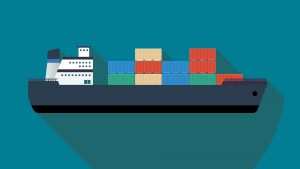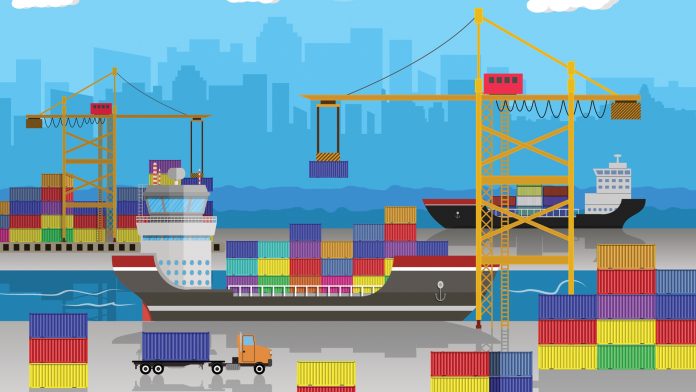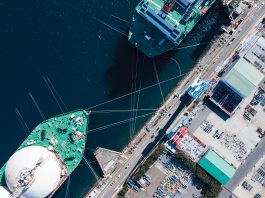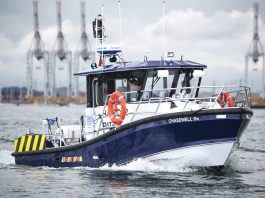Shipping can have a devastating impact on the environment, however new innovative technologies could spur on a new era of sustainable shipping.
Throughout the last decade, there has been a variety of new sustainable shipping technologies developed to reduce the environmental impact of the industry. Although these new technologies can reduce the industry’s carbon footprint, there are still many older shipping vessels that continue to minimise the impact of sustainable innovation.
Technological growth in sustainable shipping is set to continue. According to a report by Business for Social Responsibility (BSR), ‘environmentally motivated regulations are likely to become the most important cost-driver in the coming years, as governments and corporations raise the bar on air emissions, ballast water discharge, ship design, and ship recycling.
‘Similarly, regulatory changes related to security, business ethics, health and safety, and labour standards will put additional pressure on international container shipping lines to increase sustainability performance.’

The environmental impact of the shipping industry
A study conducted by International Maritime Organization suggests that shipping emits about 1,000Mt of CO2 per year, approximately 3.1% of annual global CO2 emissions. Industrial shipping also contributes to the emission of black carbon, which is produced when ships burn marine fuel. Due to lack of regulation, black carbon accounts for 21% of CO2-equivalent emissions from ships.
According to the Climate and Clean Air Coalition (CCAC), ‘Black carbon is an important contributor to warming because it is very effective at absorbing light and heating its surroundings. Per unit of mass, black carbon has a warming impact on climate that is 460-1,500 times stronger than CO2.
‘When suspended in the atmosphere, black carbon contributes to warming by converting incoming solar radiation to heat. It also influences cloud formation and impacts regional circulation and rainfall patterns.’
Industrial shipping not only pollutes the oceans and the air, but it also causes a catastrophic impact on marine life. The shipping industry damages marine life by releasing harmful chemicals into the water, polluting the air, dumping waste, and transferring alien species between ecosystems. The shipping industry also causes a number of physical disturbances among marine animals, such as dropping anchors, creating sound, changing wave patterns, and even colliding with whales.
A report by World Wildlife Fund (WWF) states, ‘The threats posed by shipping are not spread evenly across the oceans, but rather concentrated in busy shipping lanes and ports. As shipping lanes become more and more congested, the level of pollution caused by shipping increases – as does the chance of spills and accidents. Increased shipping traffic also threatens natural habitats around ports and near shipping routes.’

Sustainable shipping alternatives
There are many sustainable alternatives to traditional shipping methods. By following an autonomous and digital approach to shipping, industry operators can see a rise in sustainability, efficiency, and safety. Developed using this approach, the Jospa Tug is a new zero-pollution, zero-emissions form of marine transport that can harnessing the orbital velocity of waves. The vessel can move with or against wave direction as desired, producing strong ‘bollard pull’ to handle big loads.
Ports can promote sustainability in the shipping industry by adopting ‘smart’ technologies. The port of Rotterdam is leading the way in port sustainability. One of the main drivers behind this is SmartPort, which develops innovative technologies that allow industry players to instantly exchange information, reduce congestion and limit the amount of time ships are waiting to enter the port. SmartPort gives operators the ability to know when a product is arriving and leaving a port through digital alerts. Their technology transfers information on what kind of goods are on board, allowing those in the industry to pinpoint which ones need to be dealt with at a terminal first, such as perishable products.
“It is essential to re-think how activities in the port can be redesigned in order to be ready for the future – what trends are evolving and which opportunities occur when transforming logistics processes and existing industry, combining this with renewable energy and new bio-based, circular companies entering the industry” explains Elisabeth van Opstall, managing director of SmartPort.
Shipping professionals can also reduce the environmental impact of their industry by using hybrid or electric vessels. One hybrid ship manufacturer, Wight Shipyard, has developed the 9m Hybrid Patrol Vessel that allows operators to reduce the vessel’s speed when environmental considerations are required, or regulations are in force in an area. This new technology minimises noise pollution whilst also reducing the need for fossil fuel based energy.

Decarbonising and retrofitting existing ships
According to a recent study by University of Manchester, urgent action on emissions from existing ships is the key to promoting sustainable shipping. Published in BMC Energy, this study suggests that CO2 emissions from existing ships will dominate the sector’s impact on the climate and could even engulf the industry’s entire safe carbon budget. Due to the extended life of shipping vessels, researchers call for new policies focused on decarbonising and retrofitting existing ships, rather than just relying on new, more efficient ships to achieve the necessary carbon reductions.
Operators can cut carbon emissions from older ships by travelling at slower speeds, fitting new renewable rotor technologies, connecting to grid electricity while in port, and retrofitting other energy saving measures.
“The shipping industry continues to play a hugely important role in international trade and especially for our island nation, but this research highlights that the International Maritime Organization’s current targets need to be substantially tightened to align with Paris goals,” said Professor Alice Larkin, Head of School of Engineering, The University of Manchester.
Climate Change Lecturer at The University of Manchester, Dr John Broderick said: “Unlike in aviation, there are many different ways to decarbonise the shipping sector, but there must be much greater attention paid to retrofitting the existing fleet, before it’s too late to deliver on the net-zero target.”





